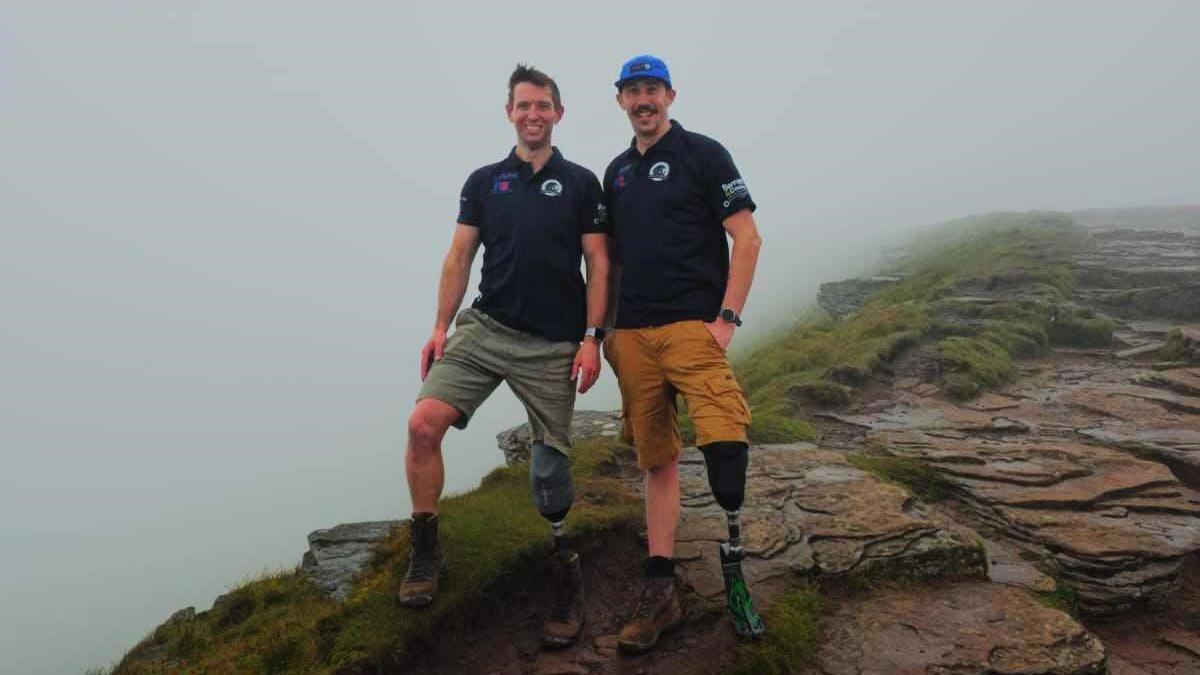Disabled veterans survive 'world's toughest' trek
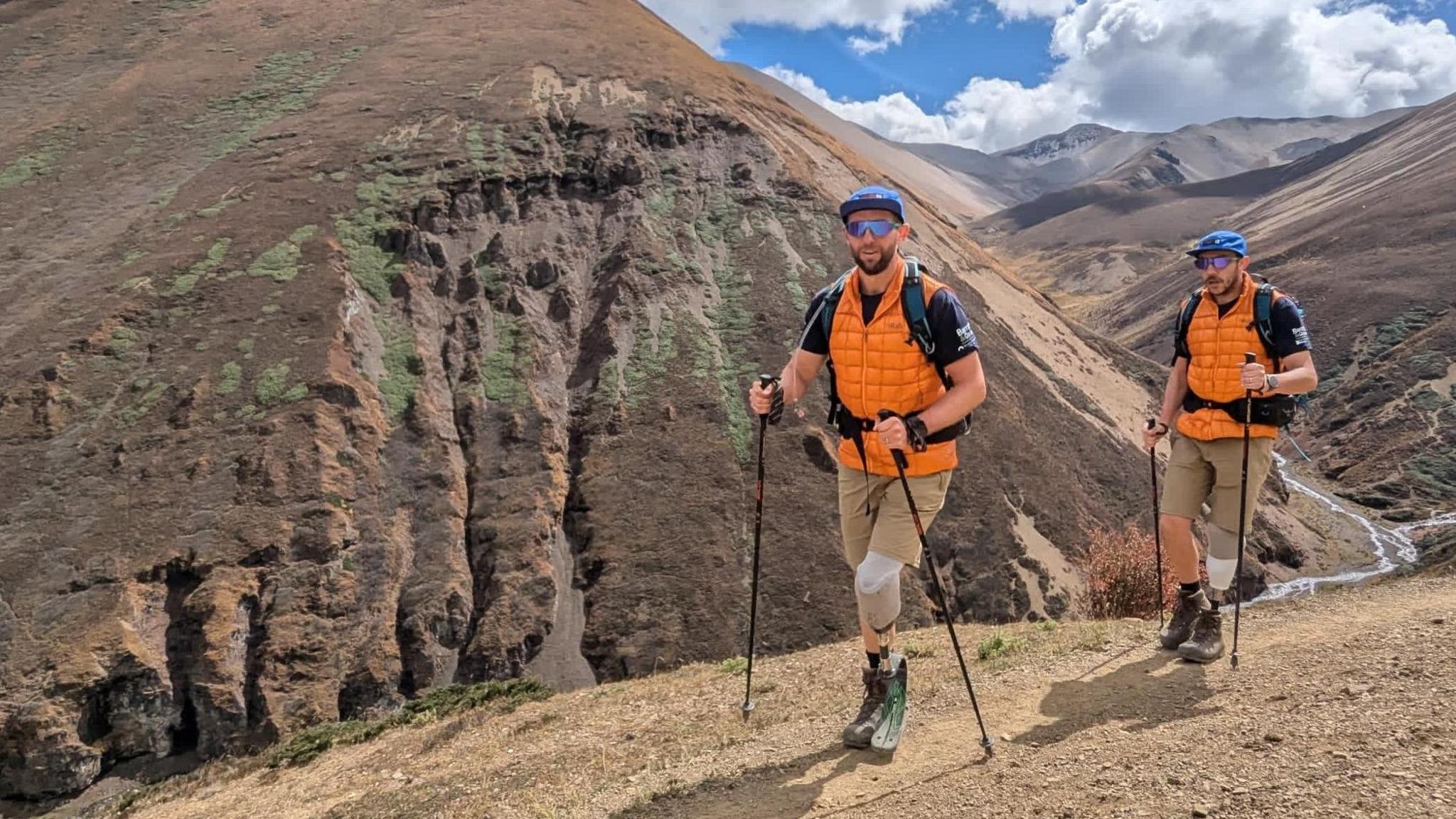
Despite the trek, veterans Rich Potter (left) and Rich Davies are still well short of their fundraising targets
- Published
Two disabled ex-servicemen have just returned from one of the world's toughest treks - a challenge attempted by only a handful of people each year.
Rich Potter, 40, and Rich Davies, 37, who both live near Norwich and have both lost legs, took on the snowman trek in Bhutan, external, a punishing, high-altitude test of stamina.
Mr Davies, from Horstead, aims to raise £50,000 for the Royal British Legion, external, and Mr Potter, from Brundall, £50,000 for Blesma, external, a charity which supports limbless veterans.
But reaching their fund-raising targets is also proving tough. Mr Davies, a former RAF corporal, is about £48,000 short and Mr Potter, a former Army captain, about £43,000 short.
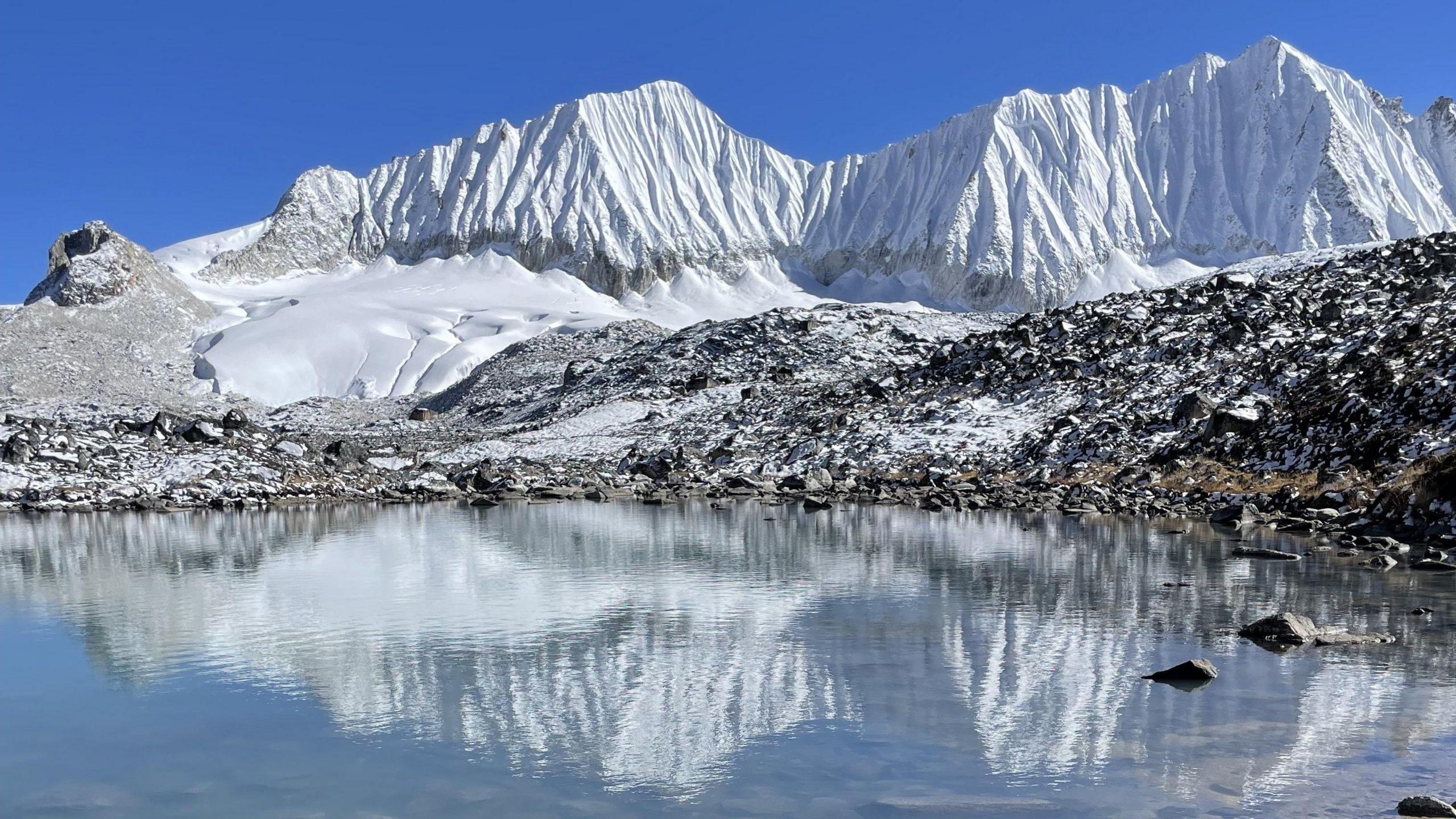
The snowman trek in Bhutan is one of the world's toughest walking challenges
Mr Davies and Mr Potter, who left for Bhutan in early October, aimed to become the first amputees to make the 220-mile (370km) trek, which reaches heights of heights of more than 16,000ft (5,000m).
Both have had below-the-knee leg amputations after accidents and both won gold medals in the Invictus Games, external in Dusseldorf, Germany, in 2023.
The two men, who walked with support teams, told BBC Radio Norfolk how they appreciated the irony of living in Norfolk - one of the flattest counties in England.
Mr Potter arrived home a few days before 11 November - Remembrance Day - after completing the trek in 28 days.
Mr Davies had walked about 85 miles (140 km) in 12 days, before swelling to the stump of his missing leg forced him to stop.
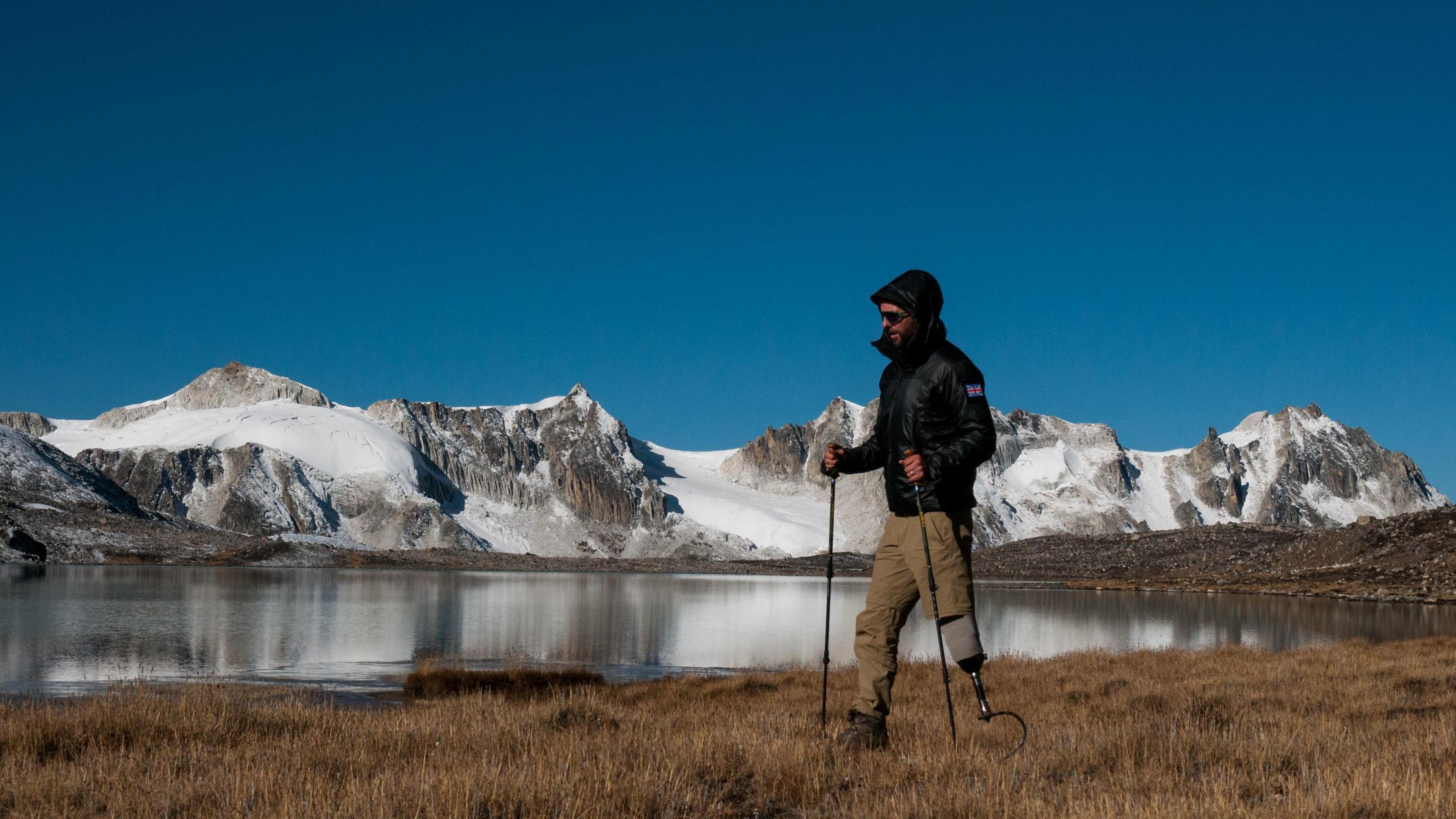
Veteran Rich Potter completed the the snowman trek in Bhutan in 28 days
But Mr Davies said they were a long way off their fundraising targets.
"Donations have just not been coming in," he added.
"I think I am on about £1,800.
"Rich [Potter] is just shy of £7,000."
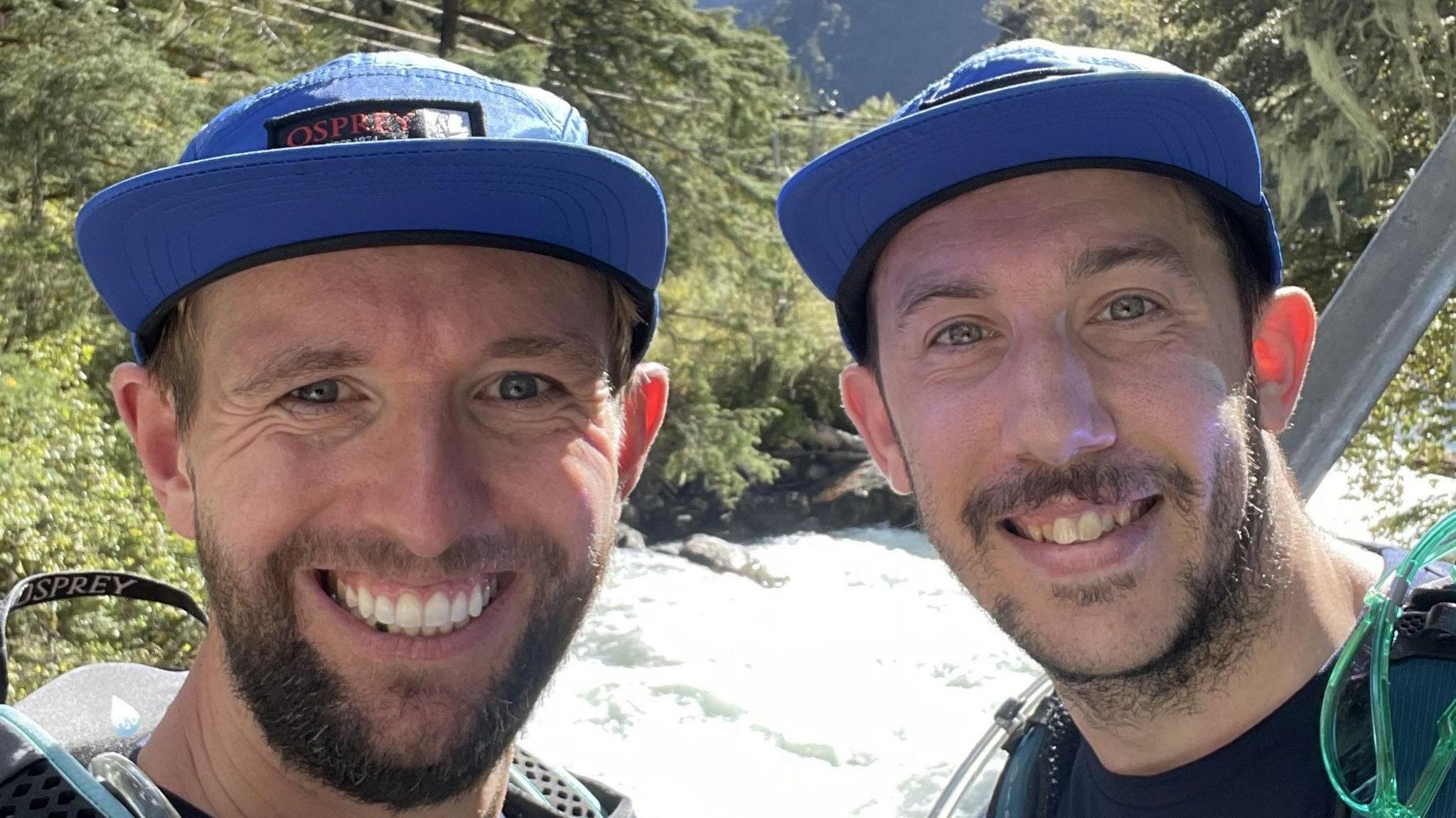
Rich Potter (left) and Rich Davies want to raise £50,000 for veterans' charities
Mr Potter said the trek was the most difficult thing he had done.
"When I was with Rich [Davies], we didn't see any snow at all," he said.
"Once we hit day 15 it was pretty much snow every single day.
"Some of it was knee-high.
"It's just absolutely sapping in terms of energy, because it sucks your prosthetic almost into the ground."
'People have died'
He said the fear of falling and dying was constantly in his mind.
"Unfortunately people have died on the snowman trek in the last couple of years," he said.
"You kind of have that in the back of your mind as you are going down these paths.
"This is a really bad turn of phrase, and I don't like using it, but it felt like at times I was walking in a minefield because every single step is mentally sapping.
He added: "You are just watching where you are putting your foot because the risk of slipping and rolling your good ankle and falling is just too much to comprehend.
"It's not something I would rush to [do] again. I mean, I am all for a challenge and all for doing stuff, but it was absolutely the most difficult thing I have ever done."
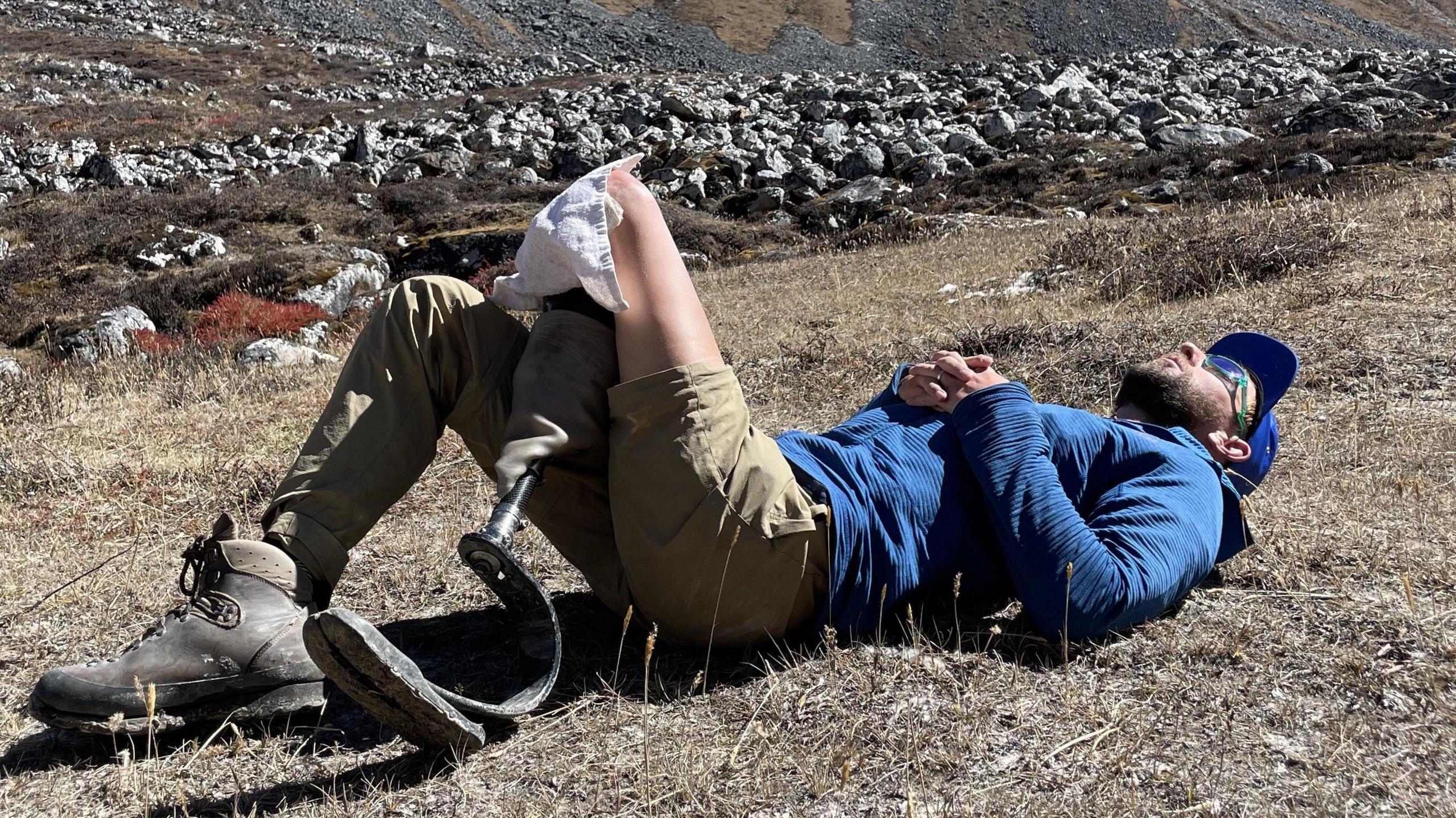
The two ex-servicemen said the trek had taken a toll on them
"It's the toughest trek in the world for a reason - that's for able-bodied people," Mr Davies told the BBC.
"We are the first disabled people to attempt it."
Mr Davies said they had trekked for eight hours a day.
"In the 12 days I did, before my leg swelled up too much, I lost three kilos (7lb)," he said.
"Rich Potter trekked for 28 days and lost a pound or two under 10 kilos (22 lb)."
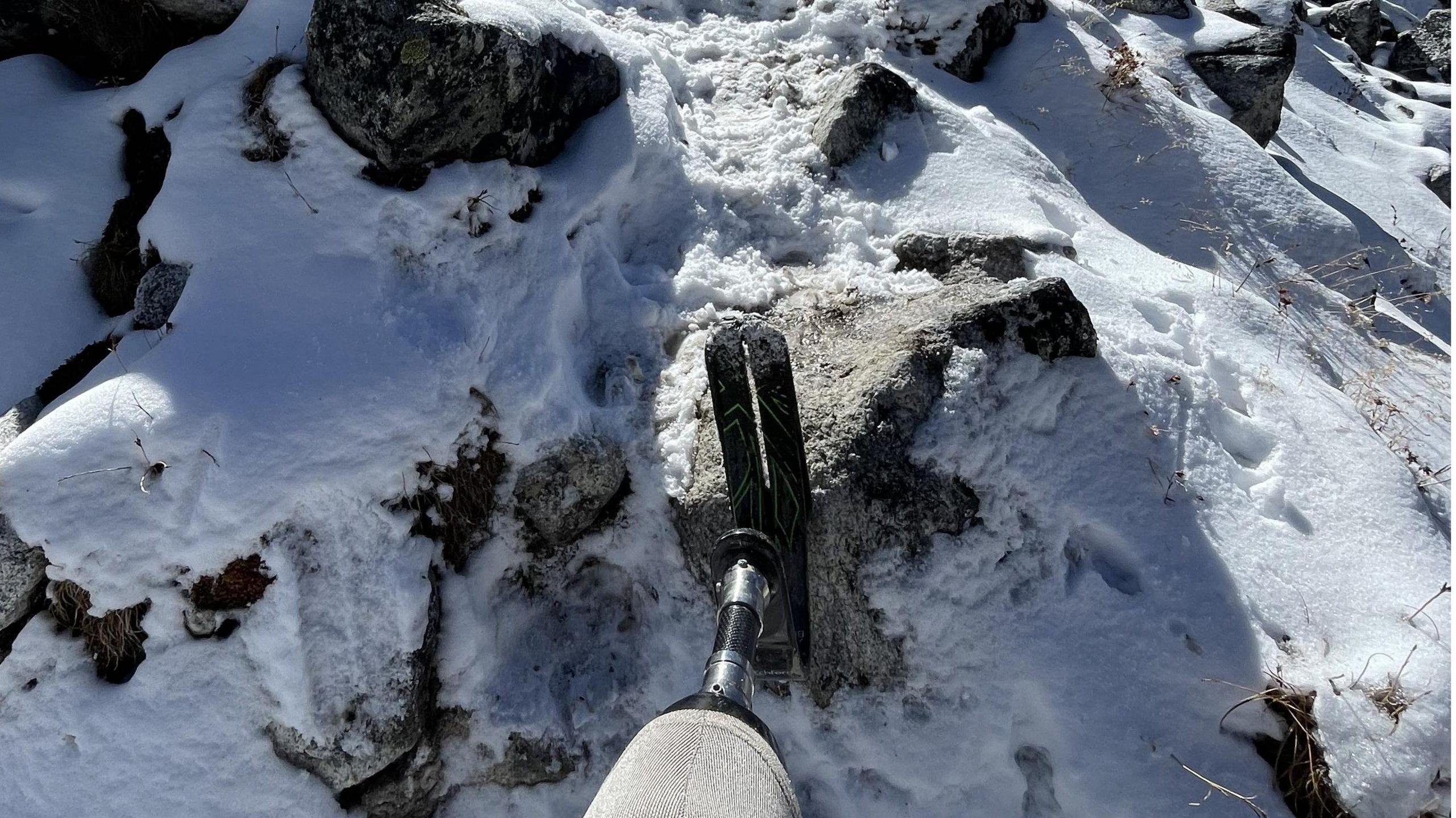
Rich Potter and Rich Davies said they were the first disabled people to attempt the trek
The Snowman Trek
Only a handful of people each year attempt the trek through Lunana, the most remote region of Bhutan, according to a BBC travel article
It starts in Drukgyel Dzong and ends in Sephu, crosses 11 passes of more than 4,500m (14,700ft)
Of the few who do set out along the high mountain passes, less than half complete the route due to altitude sickness or heavy snowfall
The window of opportunity for this high-altitude undertaking is vanishingly small – the short season when the paths are likely (but not guaranteed) to be open runs from late September to mid-October
Mr Davies said he had been walking without major problems when his trek ended suddenly and left him "devastated".
"My leg was holding up incredibly well," he said.
"Then, suddenly, it swelled up one day and I couldn't get any [artificial] legs on."
He added: "By the time Rich [Potter] got to the end... he was bleeding through dressings and taking antibiotics."
Mr Davies said he hoped they had shown able-bodied and disabled people what could be achieved.
"I think people are getting too comfortable," he said.
"You have got your TVs, you have got your sofas, you have got your games consoles."
He added: "We are just two middle-aged dads who wanted to go out and prove to ourselves: 'Do you know what? We are still capable of achieving greatness'."
Get in touch
Do you have a story suggestion for Norfolk?
Follow Norfolk news on BBC Sounds, Facebook, external, Instagram, external and X, external.
Related topics
- Published25 August 2024
